
As an interior designer, I’ve always known the importance of well-defined lines. Inside the house or out, a clean, smooth line provides a finished look and a sense of clarity to an area. In my garden, a razor-sharp edge serves as a stage that sets off the careful planning and maintenance I do. Such meticulous attention to detail doesn’t require a lot of work. I use four simple steps to create and freshen up my edges in spring, giving my beds the crisp lines that reflect the effort I put into my garden.
Step 1: Create (or re-create) an edge
The first step is to cut the edge. If you are creating a new bed, you’ll need to use a garden hose to mark your desired lines. If you are freshening up an existing bed, you can jump right in.
Method 1: The traditional way to do this is to use either a spade or a half-moon edger to move along the line you’ve set out. Neither tool does a great job of cutting curves, and it can be difficult to evaluate the course you’re taking as you move along.
Method 2: I use Black & Decker’s Edge Hog, a tool with a circular blade on wheels. I simply walk behind the tool as it rolls easily along, cutting a continuous 1½-inch-deep line into the soil. The wheels give the tool the mobility to make nice curves, and you can clearly see as you cut, making it easy to evaluate and revise the line of your bed. The edger sells for under $100, and it simplifies the daunting task of caring for my four-acre garden, with its 5,000 linear feet of edging.
Step 2: Remove the turf
Once you’ve established your edge, refine it with a spade, deepening the cut to 4 to 6 inches. If you are cutting a new bed, you also need to cut the turf on the inside of the bed with the spade. The loosened turf can then be removed easily by hand. The goal is to create an edge at a 90-degree angle.
Step 3: Hone the edge
I like my edges to be razor sharp, so I place hand shears vertically along the trench wall and cut any remaining grass blades from the edge. Care should be taken not to hold the shears horizontally to avoid destroying the right angle of the edge. I repeat this step two or three times during the growing season to keep my edges looking groomed.
Step 4: Mulch the bed
 |
The final step is to put down 2 to 3 inches of mulch on the bed. The mulch not only suppresses weeds but also adds a rich, dark color to the edge. I mulch right up to the edge of the turf to create a gentle slope from the bottom of the edge to the top of the bed.
– Ray Baker is an interior designer and architect who gardens in Bethlehem, Conn.
Photos: Virginia Small.
From Fine Gardening #97








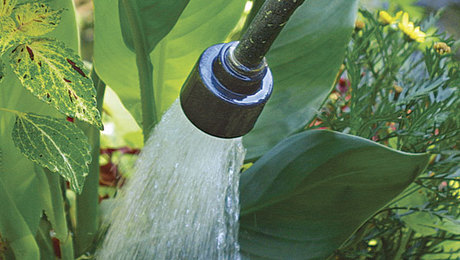
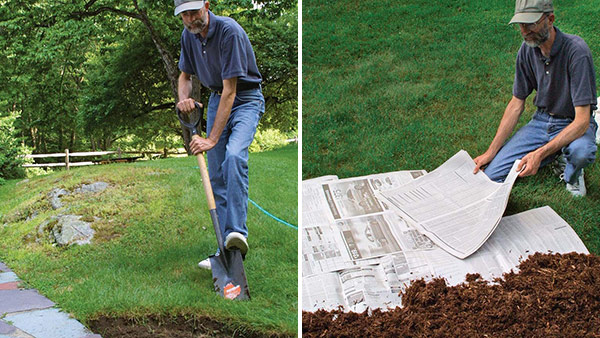
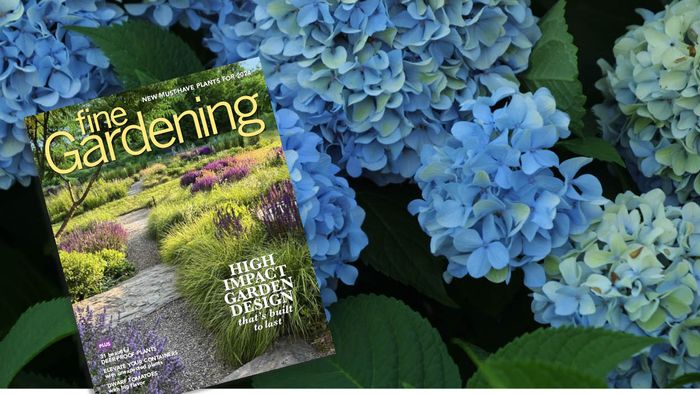
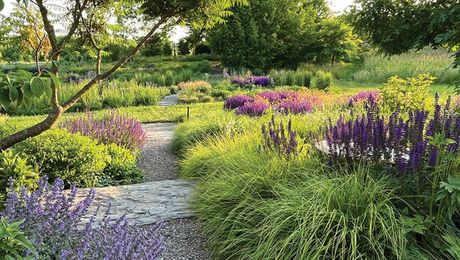
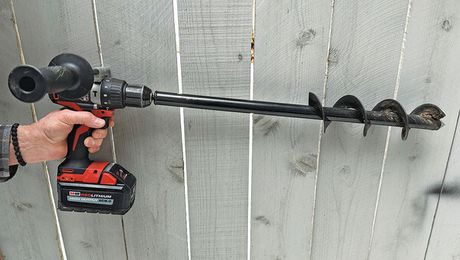

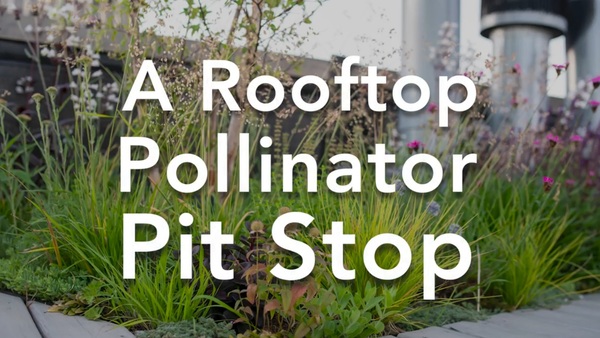
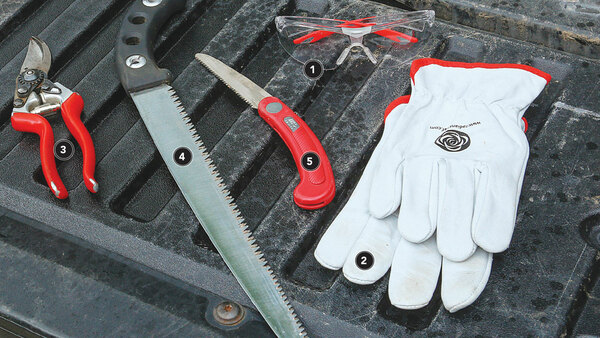
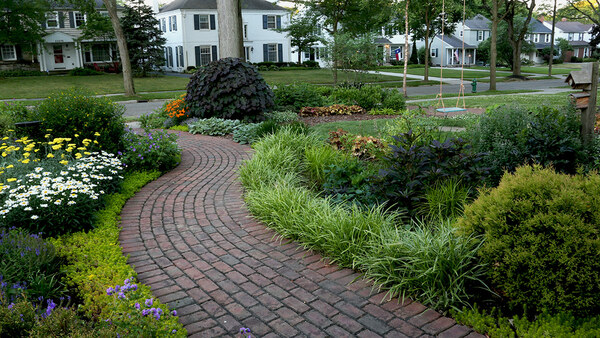
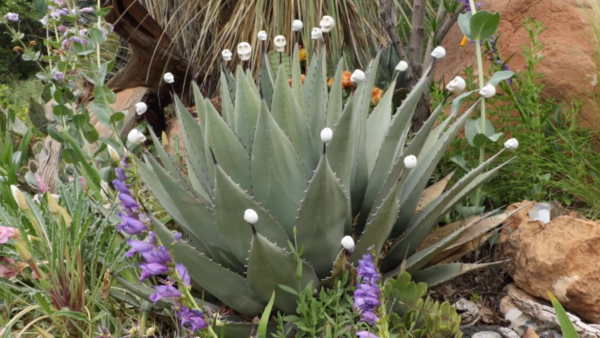


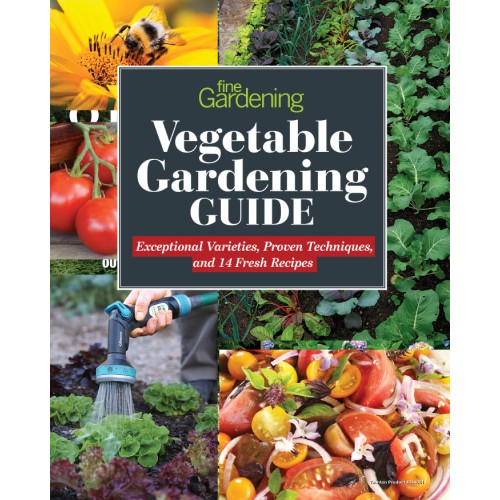
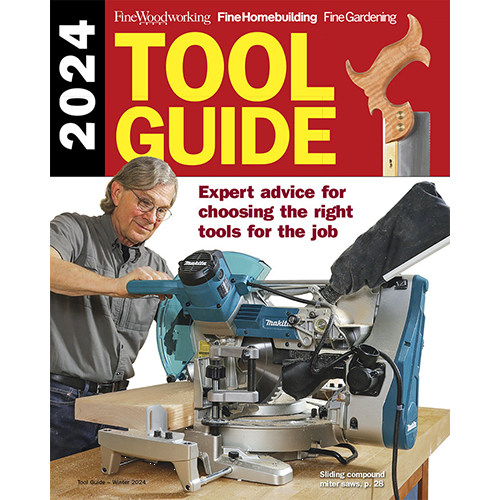
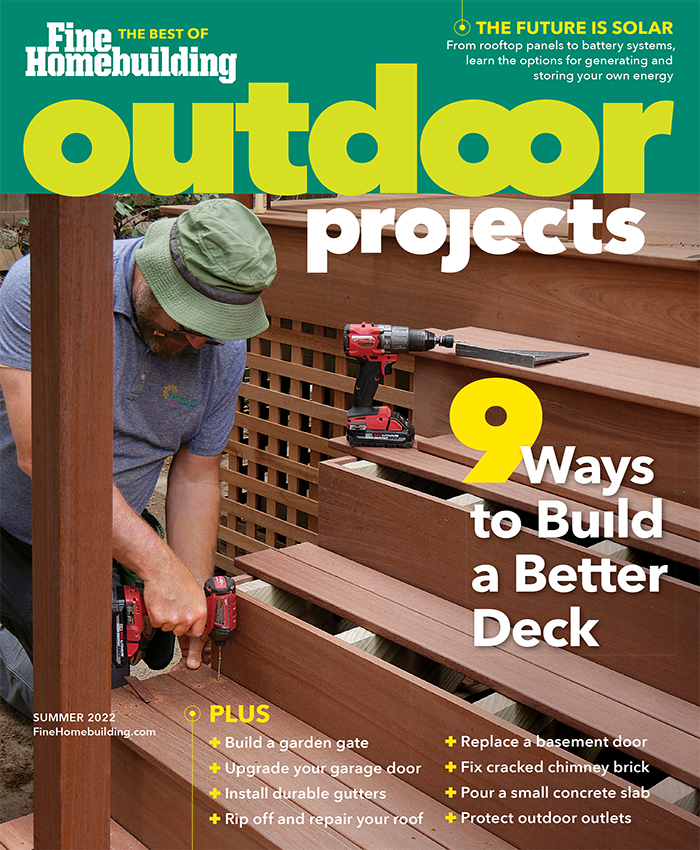


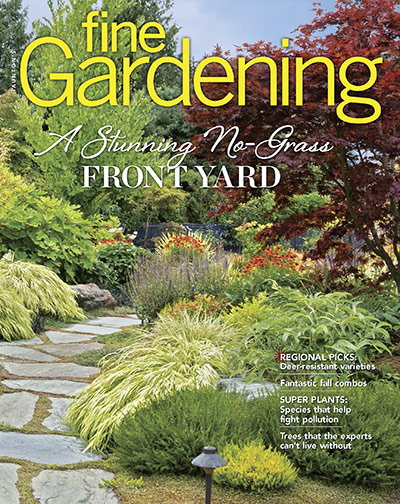
Comments
How do such classy people get rid of crab grass that has taken over, but organically?
This is Central Texas nearAustin?
You use Scotts with Halts, and play an organ.
??????
Nice. I have 3 acres of landscaped gardens (and regret it sometimes) and cannot figure out the beautiful edges. I'll look for the Edge Hog! Thank you!
I agree. There are some great edging options at http://www.yardproduct.com
a perfect tool for honing the edge is the hori hori knife...
Thanks Carol, great idea but have poppies and such coming up among this crab grass..
but desist, yet after seed gathering, will take your suggestion. Corn meal is much cheaper at a
FEED Store than a Nursery, by the way.
Check out a book called The Lawn Bible. Short, to the point. If your lawn is more weeds than grass, you may have to start from scratch.
Rule of thumb is, if you want to discourage weeds in an established lawn, you need to mow high (at least three inches). Weeds like three things: bare ground, sunshine and water. If a lawn is thin, it's the perfect set up for weeds. Right grass seed for the right geographical location. Check out your UC extension online and look for the best seed combinations for your area. Usually you have a main seed, and at least one other that is fast growing to help quickly fill bare patches.
A sidenote about corn. I always buy stuff like that at a feed store. Corn gluten meal is more expensive than cracked corn, and I've gotten decent results from both. Just know that when you put it down, you can't overseed at that time. It works as a preemergent, and will not only discourage weed seed germination, but also grass seed germination.
I don't know the routine for your part of the universe but again, check out the UC extension because there is usually a wealth of information on those sites.
Never heard of The Lawn Bible, but went to my library's website, found it and put it on hold. I should be picking it up next week. Thanks for the information. I'm really curious about the corn thing. Does it attract birds?
The above tips for the garden beds are very much helpful for the modern time landscaping north shore professionals to achieve much skills to satisfy a customer.
Thank you, interesting and useful. Ann (http://groweris.com)
When mowing high try to mow just before a rain. Mowing at 3 inches also helps conserve moisture.
This is all good advice, especially if you have lots of time, but I edge beds with a string trimmer (gas powered, .095 line), then either pull the grass runners or spot spray them on a continual basis. My edges are crisp, clean and razor sharp.
Excellent article and I love the edging machine. Will have to try and source one of those. Your edges look so neat!
I would like to know how you can weed eat around a flower bed without getting grass in the bed. I have Bermuda and zoysia grass. It is a constant battle to keep the grass out even with solid borders. And if a twig of grass gets in the bed it will set runners and I have to hand pull. I have 3" of mulch but it doesn't stop the grass.
Good job!
excellent
Marvelous!
Amazing!
Log in or create an account to post a comment.
Sign up Log in